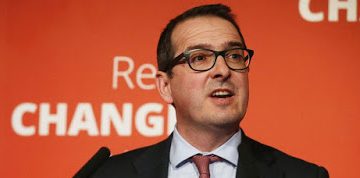
Where did the anti-Corbynites go wrong?
In just under a week, Jeremy Corbyn will almost certainly be re-elected as Leader of the Labour Party – and, if all the credible indications we have are correct, perhaps by a wider margin than the 60 per cent or so of the votes that he received last year. Yet less than a couple of months ago, his position looked worse than precarious. His first nine months in office had been marred by laughable debacle after ludicrous gaffe after embarrassing spectacle. Most of the organised, professional Labour Party at the centre were deeply unhappy with Mr Corbyn’s role in the Remain camp’s defeat in the referendum on Britain’s membership of the European Union. He had either under-performed so badly that he was not fit for his office, …

The Prospect of Scottish Independence
In September 2014 there will be a referendum in Scotland about whether to leave the United Kingdom, and if Scotland votes yes that will signal the end of a 300 year union. How has it come to this, what would Scottish independence mean, and what’s going to happen?
Jim Gallagher, Gwilym Gibbon research fellow at Nuffield College, Oxford, examines the potential consequences of a ‘yes’ vote both for an independent Scotland and the rest of the UK.

What would change if the voting age was lowered to 16?
This autumn, in his speech to the Labour party conference, Ed Miliband called for the voting age to be lowered to 16. This follows legislation by the SNP government in Scotland to allow 16 and 17 year olds to vote in the forthcoming referendum on Scottish independence. Explanations of the merits of extending the franchise to younger people normally begin with statements such as ‘if someone’s old enough to X…’ with X replaced by ‘marry’, ‘go to war’, ‘pay taxes’ and so on. We might note that these are, at best, weak arguments since 16 year olds can only marry and join the army with their parents’ permission and even 5 year olds pay tax in the form of VAT when their pocket money is translated into sweets.[1] Either way, it seems likely that the SNP’s decision was not really based on the merits of the case and was simply a narrow electoral consideration. Young people are generally in favour of Scottish independence, so allowing them to vote will increase the proportion of people voting yes. It seems reasonable to think that this is also the major reason why the Labour party is now interested in lowering the voting age in general elections to 16. Young people are seen as more likely to vote Labour, so allowing them to vote will boost Labour’s prospects in future elections. What is never quite clear is whether these are sensible conclusions. Would the entrance of 16 and 17 year olds into the electorate make much difference?

Predicting the Eastleigh by-election
Tomorrow the voters of Eastleigh go to the polls to select a new MP following the resignation of Chris Huhne. The eyes of observers of British politics are keenly trained on the outcome of the by-election because it might give us some early clues to some serious questions about the next election: How are voters going to respond when faced with two incumbent government parties? Is Liberal Democrat support going to evaporate? What is the effect of UKIP going to be?

Towards a New Politics of Production
The coalition government is nearly halfway through its term and little way towards finding a strategy for growth. For the British Labour party, several key priorities for growth are taking shape, but sharper definition is now required The Left has to identify a new politics of production and growth. The recent UK growth statistics underline the catastrophic damage and continuing aftershocks inflicted by the financial meltdown in 2008-9, exacerbated by the never-ending crisis in the eurozone. Despite it’s disastrous track-record of macro-economic management, epitomised by the Lawson boom in the late 1980s and George Osbourne’s ill-timed retrenchment since 2010, the Conservatives have consistently positioned themselves as the party of fiscal discipline and economic competence, as well as the party of …









